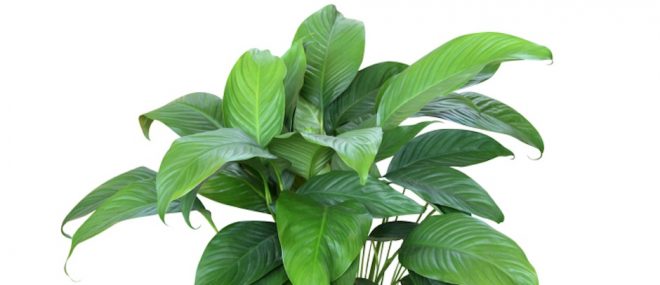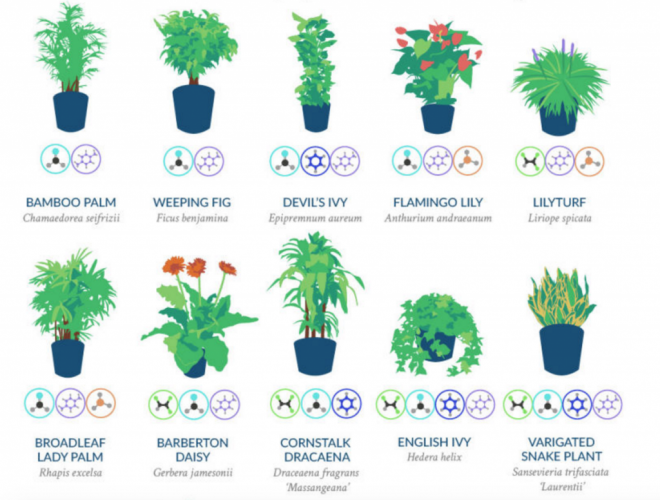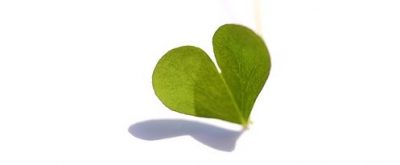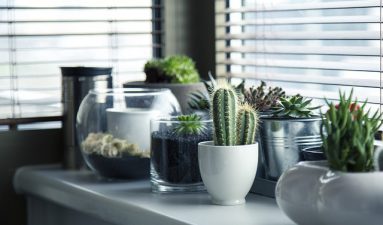 The brainiacs at NASA conducted a long-ago study on the impact of common house plants on indoor air pollution. Their findings are as relevant today as when first released in 1989: easily grown indoor gardens can work wonders in filtering airborne toxins. Green up your home and clean up your airways with some easily acquired, low-cost, and energy efficient house plants.
The brainiacs at NASA conducted a long-ago study on the impact of common house plants on indoor air pollution. Their findings are as relevant today as when first released in 1989: easily grown indoor gardens can work wonders in filtering airborne toxins. Green up your home and clean up your airways with some easily acquired, low-cost, and energy efficient house plants.
Toxic air is not just external. Everyday household items and most interior building finishes and accessories are chock full of chemicals that off-gas as products age. Consider the percentage of your day spent indoors, and the relative stagnation of indoor air, and it’s no surprise that exposure to harmful pollutants can be higher in your home than on the sidewalks that surround it.
The folks at TrueActivist cite five toxins commonly found indoors, paired with the effects caused by consistent exposure. Note that – depending on individual reaction to these chemicals, even short term exposure can result in worst case reactions.
Ammonia is an ingredient in floor wax, fertilizers, window cleaners, and air fragrances. It irritates eyes and throats.
Benzene is almost everywhere from detergents and dyes, to plastics and synthetic fibers. It’s in paint and glue, cigarette smoke and car exhaust, furniture wax and pesticides. In addition to causing irritated eyes and headaches, it can make you dizzy, drowsy, pump up your heart rate and – in sufficient doses – render you unconscious.
Formaldehyde is ubiquitous. It’s in most paper products (tissues, bags, napkins, wrapping paper), and synthetic fibers (carpeting and vinyl countertops). It irritates your nose, mouth, and throat and – in extreme exposure – can lead to lung and larynx swelling.
Trichloroethylene is an element on coatings and adhesives. Find it in ink, paint, paint remover and varnish. Exposure causes headache, dizziness, nausea, vomiting, and can sometimes lead to coma.
Xylene is in leather and printed materials, paint and cigarette smoke. Along with mouth and throat irritation, symptoms can include dizziness and headache, and worst case lead to heart complications, kidney and/or liver damage, and ultimately, unconsciousness.
 So, short of a full blown environmental retrofit of your living space, what can you do to mitigate indoor pollution?
So, short of a full blown environmental retrofit of your living space, what can you do to mitigate indoor pollution?
Refer back to that old NASA study. The scientists determined that the following plants – 18 easily acquired species – pack an air-filtering punch that will leave you breathing easier.
| Bamboo palm | formaldehyde and xylene |
| Barberton daisy | formaldehyde, trichloroethylene, and xylene |
| Boston fern | formaldehyde and xylene |
| Broadleaf lady palm | ammonia, formaldehyde, and xylene |
| Chinese evergreen | benzene and formaldehyde |
| Cornstalk dracanea | benzene, formaldehyde, and trichloroethylene |
| Devil’s ivy | benzene, formaldehyde, and xylene |
| Dwarf date palm | formaldehyde and xylene |
| English ivy | benzene, formaldehyde, trichloroethylene, and xylene |
| Flamingo lily | ammonia, formaldehyde, and xylene |
| Florist’s chrysanthemum | filters all five pollutants |
| Kimberly queen fern | formaldehyde and xylene |
| Lilyturf | ammonia, trichloroethylene, and xylene |
| Peace lily | filters all five pollutants |
| Red-edged dracanea | benzene, formaldehyde, trichloroethylene, and xylene |
| Spider plant | formaldehyde and xylene |
| Variegated snake plant | benzene, formaldehyde, trichloroethylene, and xylene |
| Weeping fig | formaldehyde and xylene |
Caring for plants is easy, and a proven stress-buster. House plants also improve indoor humidity levels. The NASA study was aimed at better understanding the science behind indoor gardens, and resulted in the agency deploying plants in space stations as natural air filters and morale boosters for orbiting astronauts. Green up your terrestrial digs to achieve the same health benefits.
Caring for plants is one thing. Caring for kids is another. If you are a health and savings-cautious mom, Mamma is s discount saving website, with mamma.com a great place to start!




One thought on “Who needs a maid? Houseplants are powerful cleaners.”
Comments are closed.